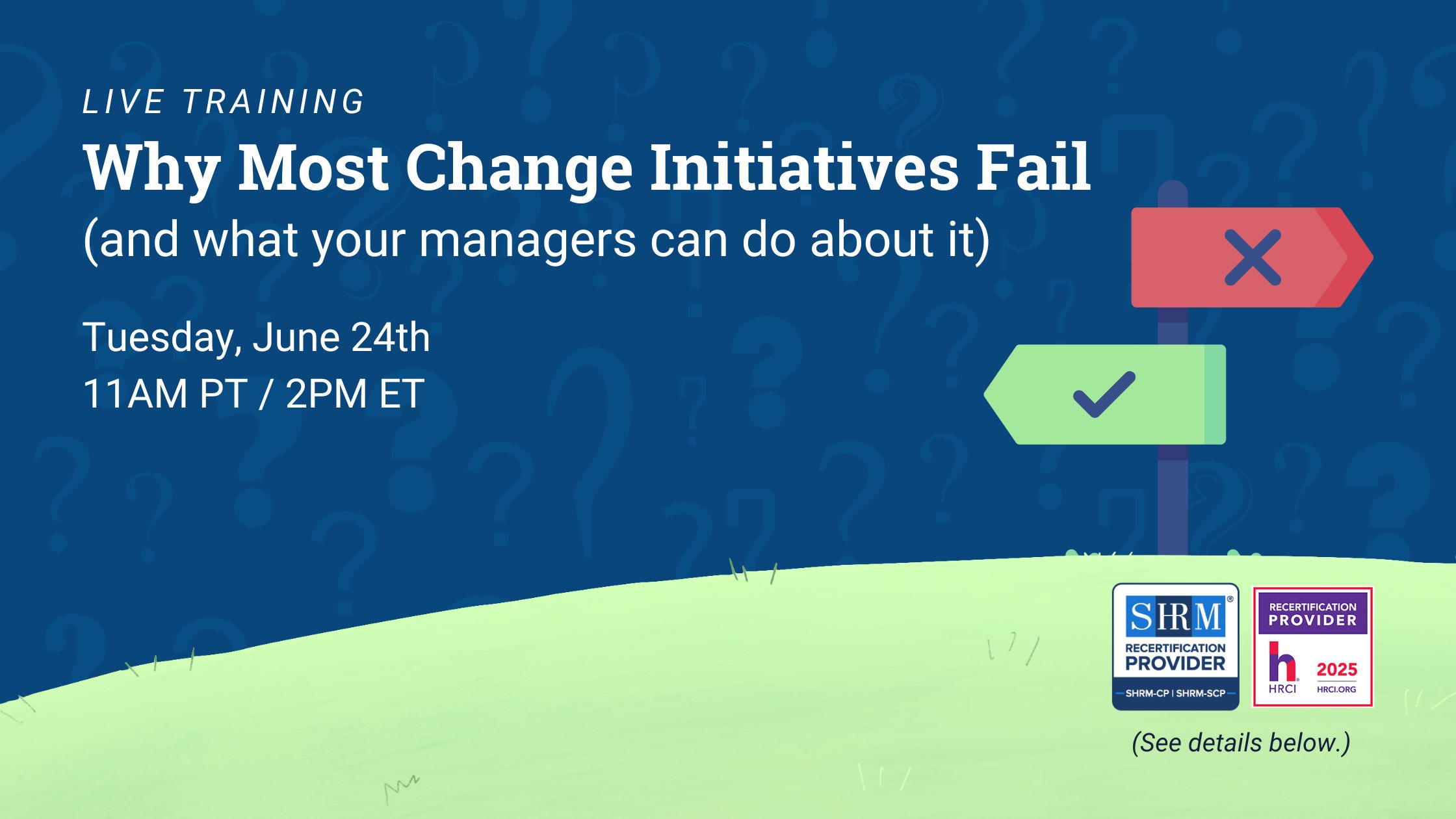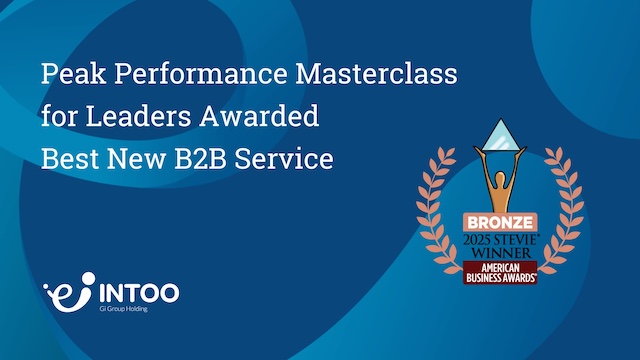The stock market has taken major hits in the last weeks due to the effects of the coronavirus, which has economists discussing just how bad this downturn could get. In fact, some experts say the U.S. is already in a recession—or is soon to be in one.
How can you as an HR professional prepare for this and other big economic shifts that are sure to come? Last October, Intoo’s senior vice president of sales Kim Johnson and Mercer’s commercial mobility specialist Crystyl Swanson shared some valuable tips for HR leaders during the “Recession-proofing Your Talent Strategy” panel at EMBARC 2019 HR Innovator’s Conference.
Here are the highlights from their session to help you prepare your organization for a recession:
Communicate issues and solutions clearly and transparently
Transparency and open conversation are key, Kim said. “It doesn’t help if the leadership team understands what’s going on, but everybody else down and up the organization have no clue. Because guess what? Then they’re shocked and surprised and angry and upset, and they don’t know what to do or really how to help. Because all of us do, as employees—we want to help the organization. We just need to know how.”
“I think it goes back to making sure there’s a two-way dialogue. This isn’t a one-way conversation. If it is, you’re going to certainly have the ramifications from that because you’ll experience it impacting your brand and how people feel about your brand.”
Show you value your people
Crystyl emphasized the actions organizations must take to make employees feel valued: “I feel valued when an employer takes the time to invest in me, to be transparent, to communicate in a genuine way. Those are the things that make me feel valued. Another thing that helps me feel valued is when I feel heard.”
“Your people are your most important asset, and if you don’t treat them like a human, put the human back in human resources, then you’re going to ruin your brand and you’re going to also cause some really bad feelings. And the impact isn’t just by the individual, it’s the whole family. It’s the community in some cases.”
Kim pointed out that the talent decisions organizations make impact not only employees, but the communities of which those employees are a part. “Recession hits not only individuals, it hits families, it hits organizations, and it hits communities. So, whatever we can do to make sure we not only recession-proof our talent management strategy, it’s going to help us as an organization and all of us as HR leaders, but it’s going to help the communities that you serve in each of the locations you have, wherever you might be. And so this has a much broader impact than sometimes we even think.”
Think creatively to avoid layoffs
Kim noted that in 2009, a number of organizations conducted layoffs, only to realize later on that some of the talent should have been retained. She emphasized employers must “really do some assessment and analysis” and ask a number of pivotal questions: “What’s the state today? Are there any adjustments I can make that don’t impact people? Maybe it’s, we change hours… you take a cut in pay. You don’t know what people may be willing to do if they have all of the information to make a decision for themselves.
Involve employees in the decision making process
Forward-thinking companies can mobilize their employees to find solutions. Kim told the story of one company who went to their employees to ask for suggestions. “They said, ‘Here’s our situation…. Our numbers are down. We don’t want to lose people, but we have to cut X number of dollars out of our organization. Why don’t you collectively come up with some ideas on what we can do as an organization to help us through this time of change?’”
“I thought it was really creative and showed how much they trusted their people—instead of pushing a solution out to them that they may or may not like, getting buy-in and feedback from them on what would be a palatable solution based on the challenges we’re having as an organization.”
Support laid-off employees with outplacement services
Both Crystyl and Kim recommended that organizations do their part to help employees impacted by layoffs find new positions quickly.
“Number one, especially if you’re going through downsizing, you really should offer some sort of outplacement services and really help the person utilize them,” Crystyl said. “Have a very specific plan in place from a reach-out perspective to get that person re-engaged and back in the workforce. Outplacement will do that.”
Crystyl noted that providing outplacement services to laid-off employees also helps the employer preserve its brand. “In the age that we’re in, social media is everywhere…. We have to think about, ‘How do we come to the table empathetically and make sure we have a plan in place?’ And for me, what that looks like is actually having a reach out to check in with the person after they’re let go, especially in the layoff situations, and reengage them and help them to understand that their skillsets are valuable, they are valuable people. We just need to find a new role.”
Kim recommended getting the outplacement company involved as early in the layoff process as possible to prevent missteps and plan for positive outcomes. “The outplacement company sees this every day. They can provide best practices. They can tell you the implication of doing something that you’re thinking about doing and how it could blow back if you’re not careful…. Bring that partner in early and often, and allow them to really be the support and guidance to you based on their experience.”
To address HR concerns around the coronavirus crisis, Intoo will be holding a one-hour live panel discussion and Q&A with HR leader and #HRSocialHour Podcast host Jon Thurmond, employment attorney Kate Bischoff, and outplacement veteran Caroline Vernon. Join us on April 1 at 11 a.m. PT / 2 p.m. ET for the live chat. Reserve your seat now.
The views expressed within this publication are those of the individual authors writing in their individual capacities only – not those of their respective employers. All liability with respect to actions taken or not taken based on the contents of this site are hereby expressly disclaimed. The content on this posting is provided “as is” and no representations are made that the content is error-free.
___
Intoo’s outplacement solution helps companies recession-proof their talent strategy through a best-in-class career transition program. Learn more about our advanced outplacement program can help you retain positive relationships with departing employees and protect employer brand during a layoff by requesting a demo today.











